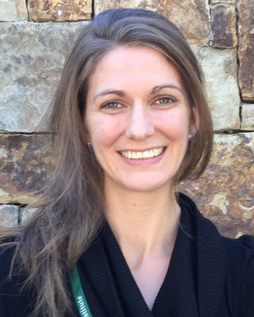- Home
- About Us
- Membership
- Newsroom
- Resources
- Events & Webinars
- IPE Collaboration Award
Interprofessional Education Collaborative
|
Strengthening Climate Change Education for the Health Professions
Monday, October 24, 2022, 12:00 PM - 1:00 PM EDT
Category: Webinar
Description In June 2022, the World Heart Association issued an open letter to universities and all education stakeholders to advance action on health and climate change. To prepare health professionals to meet the needs and challenges of the future, educators worldwide are called upon to integrate climate change studies into health curricula. Faculty, practitioners, and students are encouraged to register now to learn more about educational strategies and resources that can be used to integrate climate-health content into your programs. Speakers include:
To register The webinar has endedRegister to watch this recording on-demandSpeakers
Cecilia Sorensen, MD is the Director of the Global Consortium on Climate and Health Education at Columbia University, Associate Professor of Emergency Medicine at Columbia Irving Medical Center and Associate Professor of Environmental Health Sciences at Mailman School of Public Health, Columbia University. Dr. Sorensen received her Doctor of Medicine from Drexel University College of Medicine and completed a four-year emergency medicine residency at Denver Health. Following residency training, she completed a 2-year fellowship in climate change and human health policy with the National Institute of Environmental Health Sciences (NIEHS). Her work focuses on the intersection of climate change and health and how policy solutions, clinical action and education can build resilience in vulnerable communities. She currently serves on the working group for the National Academy of Medicine’s Climate and Human Health Initiative. She was an author for the U.S. Fourth National Climate Assessment and serves as a technical advisor for the Lancet Climate and Health U.S. Policy Brief. She is the co-editor of the textbook Climate Change and Human Health: From Science to Practice.
Dr. Japhia Jayasingh-Ramkumar is a board-certified internist practicing at McKinley Health Center caring for a diverse student population and Director of Simulation Education at the College of Medicine at the University of Illinois at Urbana- Champaign (UIUC). She is a Clinical Associate Professor at the University of Illinois, Carle Illinois College of Medicine and American University of Antigua. She has two decades of experience in medical education with areas of focus in cross cultural medical education and in the last several years on the enormously important issues of the climate, biodiversity and pollution crises. She is actively involved in developing medical school curriculum and educating the medical community locally, nationally, and internationally on the topic of Climate Change and its Health Impacts. She is on the board of directors of the Champaign County Medical Society In the community she has worked in the public schools to educate students about the connection between planetary health and personal health. She is a Master Gardener engaged in education programming through the UIUC Extension Office and developed curriculum for the Community Garden Program at the Champaign County Juvenile Detention Center where she served as co-chair for over a decade. She has also been involved with educating the community about the importance of biodiversity and especially pollinators, creating habitats for them resulting in the creation of the UIUC Extension Office Pollinator Pocket Program. The enduring passions in her life have been teaching and addressing social and environmental issues in her community. As a member of the Illinois Clinicians for Climate Action, she hopes to combine her passions to shift existing paradigms, reimagine a regenerative future, educate and advocate for change to create a healthy planet for all its inhabitants.
Director, Center for Climate Change, Climate Justice, and Health MGH Institute of Health Professions Co-Director for Policy and Advocacy at the MGH Center for the Environment and Health Dr. Patrice K. Nicholas completed a Bachelor of Science degree in Nursing at Fitchburg State University, and a Master of Science in Nursing degree and Doctor of Nursing Science degree at Boston University. From 1996-1999, she was a postdoctoral fellow at the Harvard T. H. Chan School of Public Health focusing her research on symptom management in HIV disease and global health and completing a Master of Public Health degree in International Health. In May 2010, Dr. Nicholas received a Doctor of Humane Letters degree Honoris Causa from her alma mater, Fitchburg State University. In 2007, she was selected as a Fulbright Senior Scholar at the University of KwaZulu-Natal focusing on adherence to HIV and TB medications. In 2008, she was inducted as a fellow of the American Academy of Nursing. Dr. Nicholas is Distinguished Teaching Professor in the School of Nursing, teaching in the Doctor of Nursing Practice Program, and was actively involved in curriculum redesign of the DNP program. From 2006- 2019, Dr. Nicholas served as Director of Global Health and Academic Partnerships at the Brigham and Women’s Hospital, where she also co-led the efforts in their successful American Nurses Credentialing Center Magnet journey. She has authored or co-authored over 100 peer-reviewed manuscripts, two texts, and many invited and peer-reviewed presentations including several manuscripts on climate change, climate justice and climate-related health consequences. Dr. Nicholas serves as director of the MGH Institute of Health Profession’s newly launched Center for Climate Change, Climate Justice, and Health. Dr. Nicholas' scholarship and research efforts have focused on global health issues; HIV symptom management and quality of life; and climate change, climate justice, and health. She has published research and policy papers in these areas and been funded as a Fulbright Senior Scholar in South Africa at the University of KwaZulu-Nata for a research and teaching award. Most recently, she leads the Center for Climate Change, Climate Justice, and Health at the MGH Institute of Health.
Alexander J. Travis, VMD, PhD Dr. Alex Travis is Professor of Reproductive Biology, Associate Dean of International Programs, and Public Health at the College of Veterinary Medicine, and is founding Director of Cornell’s Master of Public Health program. He takes a broad Planetary Health approach in his research, driven by a passion to advance human health at the population level in ways that promote biodiversity conservation. Dr. Travis explores a diverse set of subjects related to One Health, which is interdisciplinary work that links the health and wellbeing of people, animals, and the environment. His interests include animal and human health and fertility as well as efforts to help alleviate poverty and hunger in developing countries, work that indirectly benefits local wildlife. |

 Prev Month
Prev Month View Month
View Month Search
Search Go to Month
Go to Month Next Month
Next Month

 Cecilia Sorensen
Cecilia Sorensen


 Export Event
Export Event